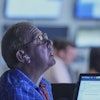
908-233-0101 • marsint.com
Critical Criteria for Selecting Contract
Manufacturing Partners
908-233-0101 • marsint.com
Critical Criteria for Selecting
Contract Manufacturing Partners
Not all contract manufacturers are created equal, so it’s
important to have criteria in place when evaluating these
vendors. Search Results
Original Equipment Manufacturers (OEMs) need to
understand the fundamental differences between contract
manufacturers. The more you know, the better chance
you have at cultivating long-term relationships with a
manufacturing partner. For companies seeking stability in their supply
chains these relationships are mission critical.
To help you in this process, we’ve created this guide to the most
important criteria for choosing a contract manufacturer.
They include:
1 Project management proficiency
2 Engineering expertise
3 Prototyping capability
4 Quality control systems
5 Supply chain and inventory management
908-233-0101 • marsint.com
Project management proficiency
If you were going to explore the wilderness, you’d take a Swiss
Army knife instead of a screwdriver. A screwdriver is a useful
tool, but there are times when it helps to have something that
has more than one function.
That’s how you should think about the project team at the contract manufacturer you
choose. It needs to be multi-functional.
A good project team will have a project manager, account manager, engineers, and
quality assurance professionals. This team should be aligned to communicate and
coordinate with your staff. A multifunctional team structure adds value by preventing
your project from going down the wrong path. Your contract manufacturing partner
should collaborate with you at every stage of a project. There’s less chance for
specification drift, production delays or logistical issues.
Communication is key to successful projects of any kind. Your contract manufacturer
should be responsive and upfront. Knowing where you may be encountering
production or supply change issues as early as possible, mitigates the impact they have
on project deliverables. Make sure you have a team with whom communication is easy.
Teams accustomed to using cloud-based technology to share designs, drawings, and
other details can also be helpful. Collaborative software solutions help to streamline
access to the latest project information. A centralized repository with shared editing
capabilities also reduces the likelihood of versioning issues.
How will our project be supported?
What is the composition of the project team?
How will we be advised of the status of our project? How frequently?
908-233-0101 • marsint.com
Engineering Expertise
Contract Manufacturers may offer varying levels of engineering expertise. Depending
on your product, you should look for vendors who offer technical support that can add
strategic value to your project.
In today’s fast-paced world of product introduction, it pays to find a contract
manufacturer with a deep bench of engineering skills. This expertise may include
mechanical, electrical, and software engineering capabilities, with a broad range of
project exposure.
Validation of new releases and testing during production cycles is critical to the success
of your product. A strong engineering team will have the ability to design testing
protocols as well as the testing equipment fixtures required to meet the protocol
standards.
Contract manufacturers with strong engineering teams can provide a greater strategic
advantage in product design, or design implementation. Engineers who are regularly
exposed to the manufacturing environment are aligned with customer goals of
manufacturability and quality at reasonable cost.
908-233-0101 • marsint.com
Prototyping Capability
To get the best possible manufacturing outcome, you need to
have a well-developed design in place. Prototyping is necessary
for concept testing and validation, and design refinements
before manufacturing. It is of great value for your contract
manufacturer to be involved in the prototype process and
ideally have the inhouse prototyping capabilities.. This process
will quickly identify any downstream issues. By having the
manufacturing team involved in your prototype process you
bring more knowledge to bear on the released production runs, making them as
successful as they can be.
Quality Control Systems
Quality control shouldn’t be an isolated activity at the end of the
manufacturing cycle; it should be ingrained into every stage of the
process from design through packaging and distribution.
Your contract manufacturing partners should have a team of quality
control specialists to monitor and maintain quality production. Workflows that facilitate
a constant feedback loop between quality personnel and production are critical.
And don’t forget to check the manufacturer’s certifications and accreditations. While ISO
9001:2008 registration might seem like par for the course, earning and maintaining that
registration shows a manufacturer’s commitment to total quality management.
There are factors beyond ISO compliance that your CM should be set up to
handle, here are a few:
• Familiarity with external regulatory compliance related to your product.
• Securing approval for changes not covered by the product specification -
subcontracting, alternate components, etc.
• Performance tracking and open visibility of the metrics.
• Regular top level quality assessment meetings.
908-233-0101 • marsint.com
Supply chain and inventory management
The contract manufacturer you choose should be one that has
embraced vendor managed inventory (VMI) solutions as a true
value add for the original equipment manufacturer (OEM). In
practice VMI is a family of inventory management models allowing
the customer and supplier to design a system that stabilizes the
timing of purchase orders and production. VMI typically involves
sharing of demand, current inventory levels, and production schedules to achieve the
above goal. . As the business writer Robert Moskowitz observed, VMI takes a broader
view than traditional supply chain management, “recognizing that your inventory
system extends all the way into your supplier’s operations.”
VMI also offers a number of other benefits:
• Additional flexibility. If you have customers with irregular ordering patterns, VMI can
help you deal with so-called “lumpy” demand.
• You’ll lose fewer sales. A product that is out stock is one that can’t be sold.
• Simplicity = Efficiency. If your company needs a variety of inventory components,
tracking all of those pieces could be a full-time commitment. But with VMI, that job
becomes your vendor’s responsibility.
• By having your CM manage your inventory, you free up working capital for
your organization.
908-233-0101 • marsint.com
About the author
Mars International is a U.S. based contract manufacturer with a multi-functional approach
to project management. Our client support teams include project and account managers,
quality personnel and engineers.
Mars International is ISO 9001: 2008 Certified with quality control professionals both
on and off-shore. Our services include design, engineering, prototyping, SMT board
assembly, and vendor managed inventory. We have spent more than 50 years building
a reputation as a pioneer and global leader in the onshore and offshore manufacturing
of electrical and mechanical assemblies and finished goods.
908-233-0101 • marsint.com
If you have further questions, please feel free to call us at: 908-233-0101
or visit marsintl.com/contact/




















